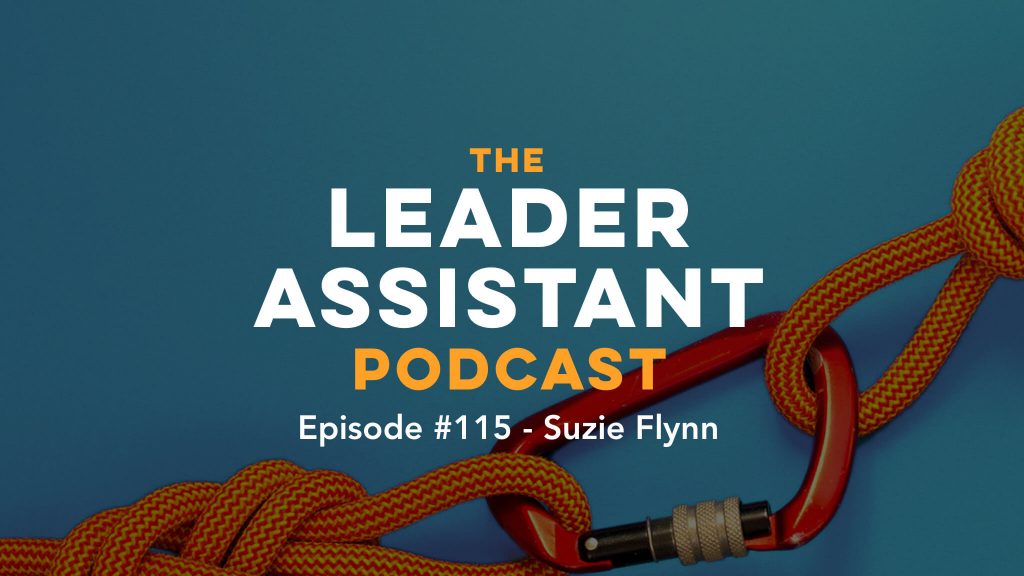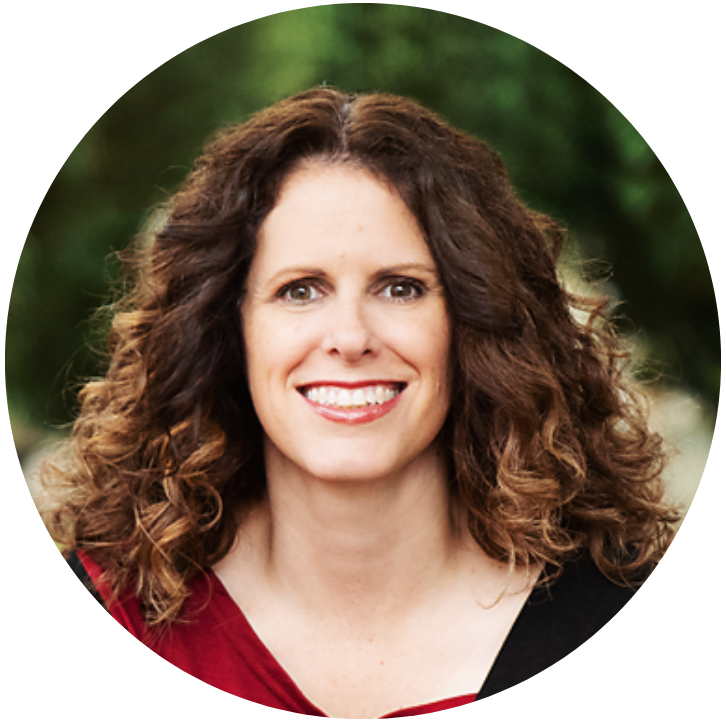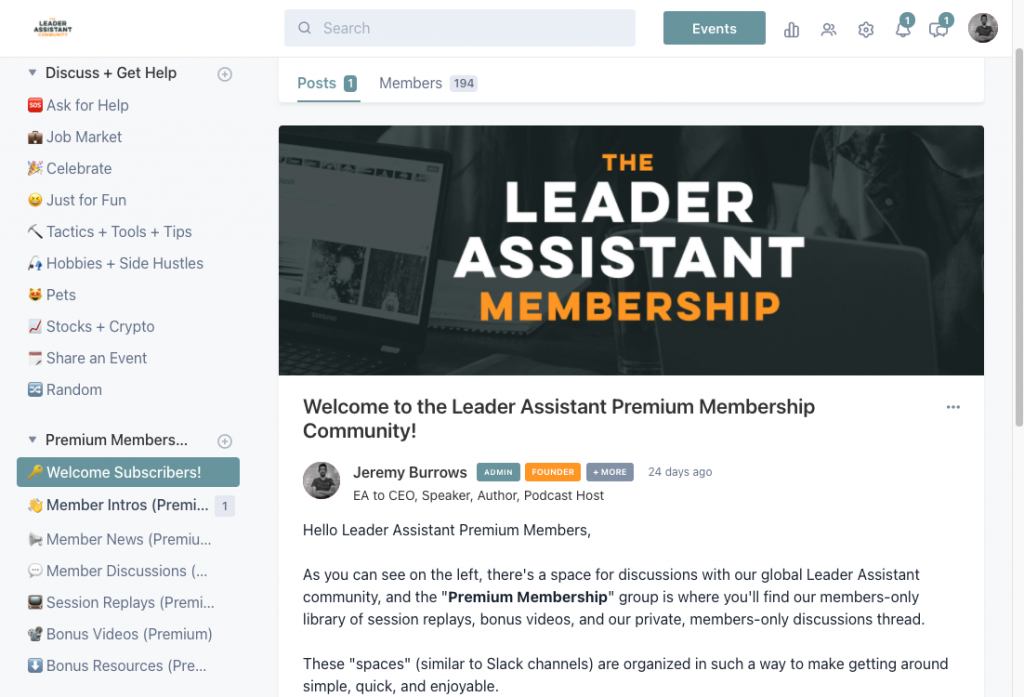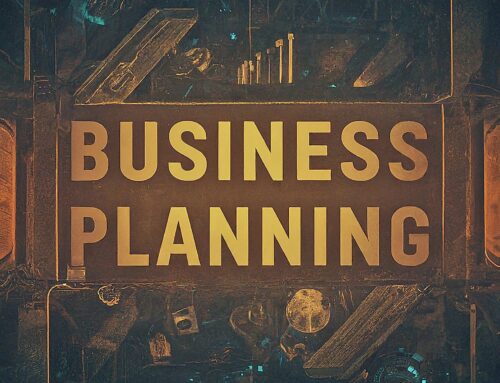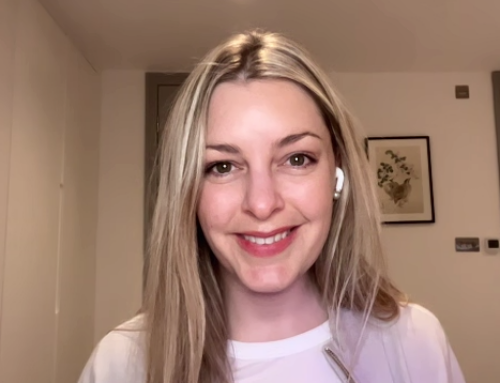Suzie Flynn is a motivational speaker, international mindset & business coach with years of experience as an executive assistant throughout her career.
In this episode, Suzie talks about whether or not becoming a remote virtual assistant is the road for you, how to shift your mindset from being an employee to being a business owner, tips on working remotely and finding clients, and more.
LEADERSHIP QUOTE
The best leaders have a high consideration factor. They really care about their people.
– Brian Tracey
CONNECT WITH SUZIE
ABOUT SUZIE
Suzie Flynn is a motivational speaker, international Mindset & Business coach and founder of Suzie Flynn Coaching.
With a 22-year background in corporate London as a Personal and Executive Assistant she now inspires and leads Executive Assistants to start their Virtual Assistant business by coaching them on the ‘how’ of finding clients.
She provides Assistants with the tools and strategies to help them overcome their challenges and gives them the confidence and self-belief to pursue the choice of creating their own business.
She has been described as ‘passionate about helping others’ as she supports her clients in moving them towards their goals with ‘greater clarity’ so their Virtual Assistant business can finally take a definite shape.
THE LEADER ASSISTANT PREMIUM MEMBERSHIP
To learn more about how you can join the now 200+ growth-minded Leader Assistants, check out our Leader Assistant Premium Membership for ongoing training, coaching, and community.
LEADER ASSISTANT LIVE EVENTS
Check out our constantly updated schedule of events for admins and assistants at LeaderAssistantLive.com.
THE LEADER ASSISTANT BOOK
Download the first 3 chapters of The Leader Assistant: Four Pillars of Game-Changing Assistant for FREE here or buy it on Amazon or Audible.
JOIN THE FREE COMMUNITY
Join the Leader Assistant Global Community here, or the Facebook Group here for bonus content and to network with other assistants who are committed to becoming leaders!
SUBSCRIBE
Subscribe to The Leader Assistant Podcast so you don’t miss new episodes!
You can find the show on Apple Podcasts, Spotify, Google Podcasts, Pandora, and Stitcher.
Join my email list here if you want to get an email when a new episode goes live.
LEAVE A REVIEW
If you’re enjoying the podcast, please take 2 minutes to rate and review the show on Apple Podcasts here. Each review helps me stay motivated to keep the show going!
—
EPISODE TRANSCRIPT
Suzie Flynn 0:00
Hi there, my name is Suzie from Suzie Flynn coaching I’m an ex assistant of 22 years turn of mindset and business coach, helping executive assistants build their virtual assistant business. My favorite leadership quote is the best leaders have a high consideration factor they really care about their people by Brian Tracy.
Podcast Intro 0:22
The Leader Assistant Podcast exists to encourage and challenge assistants to become confident game changing leader assistant.
Jeremy Burrows 0:30
Thank you for listening to The Leader Assistant Podcast. Hey friends, thanks for tuning in Episode 115. You can check out the show notes at leaderassistant.com/115. I just wanted to invite you also to check out our upcoming events schedule at leaderassistantlive.com. That’s leaderassistantlive.com. We have a couple of events coming up in the next couple of months. So be sure to check out the details. Some of them are for Premium members only. But some of them are also open to anyone who would like to join us. So leaderassistantlive.com. Keep an eye out for upcoming events. We are always adding more. So hope you can join us and we’ll see you soon. Thanks for tuning in to The Leader Assistant Podcast today I’m speaking with Suzie Flynn. Suzie, how’s it going?
Suzie Flynn 1:30
Yeah, good. Jeremy, really good to be here. Thank you.
Jeremy Burrows 1:34
Tell us a little bit about what you do and why you do what you do.
Suzie Flynn 1:40
Okay, so probably best to give you a little bit of background as to what got me to where I am today. So I worked as a personnel and executive assistant in corporate London for 22 years. And basically what my way up from Secretary to PA to EA. And I kind of fell in the rock into the role in some respects. Because when I was 16, my dad, he gave me an ultimatum. And he said you have two years extra education then out to work. And as a young girl of age 16 I didn’t really know at the time what I wanted to do. But I had learned to type at school and I quite enjoyed it for some reason. And my mum looked after my dad’s family business, he was a plumber. And I kind of just went on from there, I did a Business Administration NVQ and then fell into the role went into London, and just went on from there. I went from being a secretary to PA to EA in all sorts of different industries, from property and finance from small companies or 45 people to big footsie 100 companies. And then in 2013. Unfortunately, that was quite a tough year for me and I lost my parents six months apart. My employer at the time, were not that supportive, and actually put me through a disciplinary for poor performance about seven weeks after my mom passed away. So after I lost my dad, Dad, I just saw it as an opportunity, really. So it’s an opportunity to really think about what did I want to do. And I always knew from a very, very young age, I wanted to help people. And I knew I was doing that in my role as an assistant. But it felt like I wanted to make a deeper impact. And that was when I first came across coaching. So fast forward a few years, I trained as a personal performance coach with the coach and Academy, I went on to do other trainings, and also a Reiki Master. And in 2017, I launched my coaching business and an A now niche in helping assistants build their own virtual assistant business, which, you know, in the world that we’re living in, there’s quite a lot of interest in that area. So yeah, that’s a little bit about me and how I got to where I am.
Jeremy Burrows 3:50
Wow, that’s great. So you have a ton of assistant experience. And then you kind of jumped into the virtual world and coaching. What, Why, let’s talk about coaching for a second, why should someone work with a coach?
Suzie Flynn 4:09
Because I think it allows them to see their blind spots, things that are not seeing, and it allows them to get outside of their comfort zone and actually take action in the direction that’s going to really bring their dreams to reality because often, we don’t ask the questions that a coach or someone else will ask us because we want we don’t know what the questions are. And I think I believe that having a coach will really help someone who’s looking to shift from an assistant to a virtual system really like know what’s possible. So some of the results that I see from my clients are just a huge shift in confidence alone ditching the imposter syndrome, and I see them move on and get their own clients and have that freedom and autonomy and just having someone that’s got a different perspective having Someone that’s going to coach them, challenge them and hold them accountable to thinking in a way that the perhaps never had done before, is quite eye opening for them, and they can start to create shifts in their life and in their mindset that they wouldn’t have been able to have done otherwise.
Jeremy Burrows 5:17
Yeah, I agree. I think coaching, in my opinion, I think coaching is more more helpful than men, mentorship, I think mentorship can kind of be more of a informal, you know, casual relationship where one person is trying to, you know, advise them. But I think coaching is a little more direct. And like, Listen, I’m going to help you get from this point to this point. And that’s, that’s what our relationship is in. So yeah, I’m a fan of coaching, I do coaching myself and have found value from having coaches in my life as well.
Suzie Flynn 5:56
Fantastic, and I’d have to agree there with what you’re saying regarding mentoring and coaching. And I feel that coaching really allows us to work with a client and really, like empower them to find their own answers. And to not just constantly rely on others, but just to really empower them. And as you move into having your own business as a virtual assistant, or otherwise, you do you have to lead every day, you have to be the leader in your business, and you have to show up for your own clients. So yeah, I think it’s hugely powerful.
Jeremy Burrows 6:28
So let’s talk a little bit about the shift from executive assistant or an office assistant to remote executive assistant or virtual assistant. Why Why would somebody consider that? Why should they consider that change in their in their world?
Suzie Flynn 6:47
Good question. Thank you, Jeremy, for asking that. And I think there’s so many different reasons. But there’s different reasons. And often, what I hear is that people want to be their own boss, they want more freedom or autonomy, more flexibility. They feel like sometimes that they’ve done their career for you know, X number of years, or that I had, and they’ve got to a point in their life where they want to do something different. They want to offer value in a different way, and often on their homes. Some of the clients I work with are mums. So they want to be able to be at home when the kids arrive home or, or do the school, pick art and be more present as a parent. But just ultimately, like one of the things I hear a lot is they want to do something for themselves. Because as we know, being an assistant, we are always putting the executive first like we were making sure the executive gets everything they need. And it’s a wonderful role. But what I hear is that assistants feel like, well, I’ve done this for 2030 years, I want to do something for myself, I want to have more food and more flexibility, and want to have the ability to design my day, the way that I want to run it. And it really does give them their autonomy in terms of who they work for, and the hours they work and the prices they get to charge for their services.
Jeremy Burrows 8:03
Yeah, so you know, it’s interesting, a lot of people will say, Yeah, I want the freedom, want little more control. And then you know, I’ve experienced this in my past, and then I know other assistants have experienced it as well. But basically, they go out and they try to be a VA and they get some clients, they realize they need to have more clients. They realize it’s difficult to find clients. And then next thing, you know that they’re like, Alright, I’ve got this VA business, but, you know, I’ve got six bosses now instead of one. And I if I if I lose one or two of these, you know, clients bosses, then I can’t afford my health insurance. So how do you encourage kind of that shift from employee to business owner? And can you give some honest truth to what that that role really is like for those who are maybe romanticizing the VA role?
Suzie Flynn 9:01
Yeah, let’s take some romance out of that. Look, I’m gonna be honest, Jeremy and with your audience say building a business is hard work. And you’ve got to really, really want it. And I always refer to the book by Simon Sinek. Start with Why. Because I think it’s so important that you’re clear on why you’re building a business. Because as as with anything in life, there are going to be ups and there are gonna be downs. Some days are gonna go really well. And some days you’re gonna be working really late. And yes, you know, a client will finish with you. But if you’re clear on how you market your services, and you stay consistent with marketing your services, then yes, you can keep getting the clients in what can happen is that we we see in business, and I’ve experienced it myself while we go through the peak and trough and a virtual assistant or any business owner will be like, Okay, I’m fully booked. I can relax now. I don’t need to market my business. But to be honest, sales and marketing is the lifeblood of any business. It doesn’t stop there. As you grow and scale your business, obviously you can outsource things you can bid, you know, hire associate vas, you can hire a social media manager, etc. But it doesn’t stop. So I think like the mindset is, is recognizing the marketing is going to be part of your business, you know, ongoing going forward, it doesn’t stop. Because if you stop marketing, then and you’re not building that pipeline, then you’re not going to get, you know, clients in when a client leaves. So I would just say, keep being consistent. Keep showing up, keep building your brand. And there will be tough days. Absolutely. I definitely have tough days in my business, and just throw a pandemic in, it definitely doesn’t help. But start with understanding your why. what your purpose is, and keep being consistent in your marketing, keep showing up, keep building bait being visible. And just keep Yeah, just keep connecting with your why. So hopefully that answers your question a little bit, Jeremy.
Jeremy Burrows 10:58
Yeah. So I mean, basically, if you don’t want to be in sales and marketing, then this is gonna be a tough transition for you.
Suzie Flynn 11:07
But also like sales, as I’ve said to clients, and people that I’ve spoken to assistance, sales is just a human conversation is just an exchange of ideas. And sounds is service sales or service is not that traditional mindset and vision of the icky pushy, Carl’s car salesman doesn’t have to be that sales is about service sales is about helping someone achieve their dreams. So there’s a little bit of a mindset shift there in terms of what sales marketing is.
Jeremy Burrows 11:37
Yeah, definitely. Okay, so let’s talk about working remotely. What are kind of your, maybe maybe what’s the top challenge that your clients have? And you have working remotely? And then what are maybe your top one or two tips, you know, hacks, if you will, for working from home? Yeah,
Suzie Flynn 12:02
I think the challenges can be depending on your circumstances. So for me, I live on my own. So the challenges are like, unless I pick up the phone, or send someone a voice note, I’m not gonna speak to anyone. So I make it my purpose to get out for a walk at least once a day, speak to my local community and engage and interact. So I would just definitely say make sure that you know, you speak to people, but also make sure that you know, you are someone that can work at home, that you’re going to be okay in that working environment. But the challenges are, of course, you know, when you’ve got a family, you’ve got young kids, if they’re being homeschooled that comes with its own challenges. So find out what is a good working environment for you and things are now opening up. So maybe that you want to be partially working at home partially working, or at a coffee shop, or a sort of social working space, like we work in the UK, find out what works for you. But I’d also say like focus on your self care, because it’s so easy, you haven’t done this myself, it’s so easy to get up, start the work day, not take a lunch break. And then next thing you know, it’s 930. And you’re just off to brush your teeth and off to bed, your mind, your brain needs time for recovery. So we allow yourself to slow down to speed up. And really give yourself the breaks like make sure you move your body every hour. Make sure you give yourself a lunch break, get out of the home, or wherever you are that you’re working, and create a good bedtime routine, I shut down my tech two hours before bed, I unwind I read. Because as a business owner, it’s not the same as working for someone else. When you finish at a certain time you get the train home, if you’re obviously working in an office or you switch to another room you need, you need time to switch off. So having a self care routine, I think is definitely key. So find out what works for you like what environment works for you. And just make sure you take a break from the screen. Because when we slow down, we actually speed up, we are not going to be productive. We are not going to grow our business, we’re not going to do such a good job when we’re constantly pushing. We need to take a break and give ourselves time for recovery so that we can actually come back stronger than next day.
Jeremy Burrows 14:31
Yeah, that’s great. So how do you communicate typically or recommend your VA clients communicate to their to their executives to their clients? boundaries. So you know, do you are you pretty strict on hey, you know, I’m available from this this hour to this hour. I’m not available on this day. Does it depend on the client? How does that usually work with the contracts with clients?
Suzie Flynn 15:00
So for me as a coach on my contract with my clients, so I set the boundaries right from the beginning, because I think that was one of the learning lessons that I made right. At the beginning of my coaching business, I had, you know, clients, occasional clients messaging me on Facebook or drop me an email. So now I give them access to a private Slack channel. And they have access to a private Google Drive folder with their workbooks. And I make it really clear in the welcome Platt pack, what my hours are that I’m available for clients between nine and 630. And not available at the weekend, I will come back on a Monday. And I think it’s really, really important to set those boundaries. And this is something that I talk to my clients about as they set up their business, because they’re so used to having the boundaries set for them in terms of they go into the office, these are the house they work, this is their job description, etc. But I remind them that it’s it’s their business, it’s their choice, like often clients don’t want to work on a Friday, and they’ll do their own business admin, but it will say to the man get clear on what you do want and what you don’t want, you know, what are your non negotiables? And what are you not willing to tolerate? And set your boundaries right from the beginning. And I think that can be quite scary for my clients initially, because they are so used to the employment business model where the boundaries are set for themselves, but with the right support and mindset shift, they realized that, yes, they are a virtual assistant, yes, they are a business owner, and that they can set boundaries on what is acceptable and what’s not. And it comes down to also choosing their clients, like I don’t work with everyone, if they’re not the right fit for my program, I won’t invite them in. And I say the same to my clients that you’ve got to make sure that it’s the right fit for both you and the client.
Jeremy Burrows 16:50
Yeah, that’s great. I mean, it’s all about setting expectations. upfront for sure. Sure. Okay. So if I’m listening to you right now, and I’m, you know, driving to my office job, and I’m thinking, You know what, I’ve had enough of this, I’m ready to move on to the virtual world, and I’m ready to find clients and start a virtual assistant business. What’s what’s kind of step one and two, as far as finding clients,
Suzie Flynn 17:25
finding clients. So that’s something that comes up a lot. The two questions that come up the most from assistants that I speak to is how to get started, they fall into overwhelm, and how to get clients. So really think about first, like, what is your why, why do you want to build your business, like, be absolutely sure that this is what you want to do not that you’ve just had a bad day, you’re gonna build a business. Because building a business, it’s not a hobby. It’s something that you work, you know, within every day. So I would say, Get clear on what your why is, or why you’re starting your business, and then start thinking about who you want to work for. Because it’s a bit different, as I say, to the employment model, where when you’re a business owner, you get to decide I say this a lot, you get to decide you have that choice as to who you want to work for. So I’ve worked with various different clients, and they’ve chosen different niches, I’ve had one client focus on well being coaches, because it aligns with her values. But I’d really say get clear on what you’re passionate about, like, is it a specific industry like tech or coaching? What is it that you love to offer as a service, one of my clients focus more around the project and event management, because that lights her up. So really think about what you enjoy doing, who you’d like to support, and then start to do your research, start to do your research and start finding out what people are struggling with, like, go on to Facebook groups, go on to LinkedIn, ad connections, do your research, and really get to understand your clients language. In fact, one of the things I have my clients do is to actually reach out to their ideal client and invite them for a coffee chat or you know, send them a questionnaire but a coffee chat is brilliant. And with permission, asked to record that, because understanding the specific language that you know, a VAs ideal client is speaking was really going to help inform their marketing. So really understand what problem your ideal client has, and what the solution is like, yes, you want to give them back time. But what are they going to do with that time? Is it that they want to spend more time with their family? Is it that they want to spend more time scaling and grow their business is that they want to scale back in their business and do four days in their business instead of five. So get clear on who you want to help, how you want to help them what problem you want to solve for them, and start doing the research, connecting with arranging coffee chats, and really get clear on all of that. And then at that point, you can start going out adding value, and letting people know who you are, how you can help them what problem you can solve for them. Because people, you know, do business with people, they do business with those that they know, like and trust. So don’t be afraid to share personal aspects about yourself about your journey. And again, it’s really up to you how much you share. But as the site people, you know, your clients will really want to get to know like, and trust you. And one of the ways to do that is to share some of the things that you’re up to share your value, share your journey, share why you want to set up a virtual assistant business, and people will follow. I’ve had clients following me for anything from three or four months to three years before they’ve come to me and said, I want to book a call and find out more about how you can help me. So just keep building the relationships and nurturing. And you know, to they get to a point where they invest time or money with you.
Jeremy Burrows 21:02
Yeah, so speaking of money, how do you price your services? What you’ve got, you’ve got some clients, you got some people interested? What’s kind of some guidance for those looking to not under charge? And who are also afraid to scare people away if they overcharge?
Suzie Flynn 21:23
Yes, the money mindset is a funny one. And I’ve, I’ve worked through this with a lot of clients in terms of their fear of like, oh, I don’t want to charge too much. And I’ve got one lovely client who’s tired in 10 pound an hour because she, she doesn’t know she’s scared that she’s going to lose that client. But money is very much related to self worth, Jeremy. So it’s about stepping into owning what we are able to offer. And it’s also really about understanding what you need to bring in every month, like what do you what’s your basic income that you need to cover the bills, the basics, the rent, or the mortgage, the food and the utilities. And then from that, figure out your second figure, which is what you want to earn. That’s what you want to earn to live the lifestyle that you that you want to have. So based on that, you can work out an hourly rate, because you don’t want to be charging 10 pounds an hour, or you know, 100 pound an hour, you want to get clear on what you need to earn. Because at the end of the day, you’re a business owner, as long as you’re providing value, which I know that that my all my clients provide enormous value, because they’ve been an assistant for 1020 30 years plus. So just be aware of your mindset. And when you’re going into fear and telling yourself that story that oh my god, my clients won’t pay me 30 pound an hour, think back to all the years of experience to train in everything that you have accumulated over the years, and factor that into your prices. But basically make sure that you cover what you need to earn each month, if not the the the want to earn figure so that you get enough in your business. And most of the time or all the time that works out, you know, turned on the client somewhere between 25 or 35 pounds, because obviously I’m in the UK an hour, obviously, you can then look at retainer clients, and offer your clients like a 10 or 20 or 30 hour package, for example, per month. And then with the view that the more hours they invest with you each month, you would use it side by pound per hour. So it wouldn’t be 30 pounds, or maybe 20s 29 pound for 10 hour 28 pound for 20 hour and 27 pound for the 3030 hours a month. And what this does is incentivizes your client, because actually they’re saving a little bit of money. But what it does for the virtual assistant, is it it means I’ve got a consistent income coming in as a recurring revenue each month and often clients or VAs will start on the lower end package. And as they see the value of a virtual assistant in their business, they will typically start to increase the amount of hours they they use.
Jeremy Burrows 24:16
Okay, awesome. Great. Well, Susie, that’s a lot of information to kind of process and unpack and before we kind of wrap things up, I wanted to ask one more question. I typically ask this to my guests. What makes an assistant a leader?
Suzie Flynn 24:38
Such a great question. To me, the word that comes to mind is compassion, compassion for yourself, compassion for others. Because understanding that one we are going through a pandemic, it hasn’t gone away. It’s still very much there. So just having compassion and being kind to yourself and leading from a place of compassion. because if you’re just working all the time, and you’re not being kind to yourself, you’re not being compassionate to yourself as a leader, or compassionate to those that you support, then there’s there isn’t really room for growth. So I think compassion and kindness are a huge, huge elements and such important factors around being a good leader.
Jeremy Burrows 25:22
Great. Well said, I agree. I agree. Well, Susie, thanks for taking time out of your day to share with us how can people reach out to you and get connected with you? Where can they find you online?
Speaker 1 25:36
Okay, so I spend most of my time on LinkedIn so you can find me at Suzie Flynn, so it’s Suzie Flynn. Suzie Flynn. I have a Facebook page at Suzy Flynn coaching. Otherwise, you can visit my website at WWW.Suzieflynn.com
Jeremy Burrows 25:52
Awesome. Well, I’ll share those links in the shownotes so people can reach out and yeah, thanks again. Best of luck to you and we will talk soon.
Suzie Flynn 26:01
Perfect. Thank you so much, Jeremy. That’s great.
Podcast Intro 26:11
Please review on Apple podcasts. Goburrows.com

